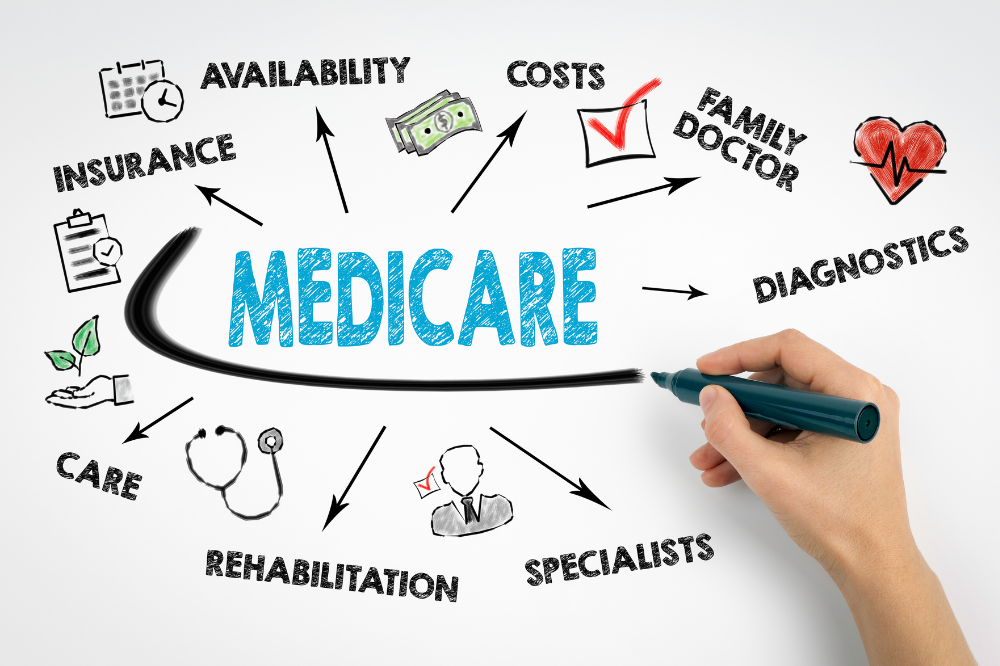What are dental implants?
Dental implants are a popular and effective way to replace missing teeth. Unlike dentures or bridges, which rest on top of the gums, dental implants are placed in the jawbone. This provides a strong foundation for artificial teeth and also helps to prevent bone loss in the jaw. In addition, dental implants can be used to support dentures or bridges, making them more comfortable and stable. The best candidates for dental implants are non-smokers with healthy gums and bones. Dental implants can be an expensive investment, but they usually last for many years with proper care.
Why are dental services important for oral health?
Dental services are important for oral health for many reasons. One reason is that they can help to prevent gum disease. Another reason is that they can help to replace teeth that have been lost due to decay or injury. Dental implants are one type of dental service that can be used to replace missing teeth. Dental implants are artificial roots that are placed in the jawbone. Once the implants have healed, they can be used to support artificial teeth. Dental implants can provide a strong and stable foundation for artificial teeth, and they can help to preserve the natural shape of the face. In addition, dental implants can help to improve chewing function and speech. For all these reasons, they are important for oral health.
How much do dental services cost without dental insurance?

Dental care can be expensive, and the cost of these services can vary depending on the procedure. Dental implants, for example, can cost anywhere from $1,000 to $4,000 per tooth. For routine cleaning and exams, the average cost is around $200. Without dental insurance, these costs can quickly add up. Fortunately, there are several ways to save on dental care. Many dentists offer discounts for cash payments, and many dental offices offer financing options that can make dental care more affordable. There are also several nonprofits and government programs that provide free or low-cost dental care. As a result, even without dental insurance, it is possible to get the dental care you need at a price you can afford.
Does Medicare cover dental services?
Original Medicare doesn’t cover routine dental services. You may be able to get some limited coverage for dental treatments through Medicaid, but it will vary depending on your state’s program. If you need dental care, you will likely have to pay for it out of pocket. There are a few ways to find affordable dental care, such as dental savings plans or discount dental plans. You can also check with your local dentist or dental society to see if they offer any discounts or payment plans.
Dental implants are considered a major dental service and are not covered by Medicare. Dental coverage is provided by insurance companies. Some plans may cover some or all of the cost of dental implants. Check with your insurance company to see if your plan covers dental implants.
Which Medicare part provides dental coverage?
Dental plans are not covered under Medicare Part A or Part B. However, dental coverage may be available through a Medicare Plan (Medicare Part C). These plans are offered by private insurance companies and must provide at least the same level of coverage as Original Medicare (Part A and Part B). Some Medicare Advantage Plans may also offer additional coverage, such as dental care. dental costs can vary widely, depending on the type of dental work needed. For example, a routine dental exam may cost around $100, while a more extensive procedure, such as a root canal, can cost several thousand dollars. As a result, it’s important to compare dental coverage options carefully before enrolling in a plan.
Dental services in Medicare Part A and Part B
Original Medicare (Part A and Part B) does not cover most dental care, dental procedures, or supplies, like cleaning, filling, tooth extraction, dentures, oral surgery, and/or dental plates. There are a few exceptions for people with certain medical conditions and people who currently haveEnd-Stage Renal Disease (ESRD). However, even if you have one of these conditions, you generally pay 100% for oral care. Under limited circumstances, hospital inpatients may have Part A (Medicare hospital insurance) coverage for services that Medicare considers an integral part of a covered inpatient hospital stay. For example, if you need to have an emergency or complicated dental surgery while staying in a hospital overnight for something else such as heart surgery, you may be covered for the dental service.
Dental services that are an integral part of medically necessary covered inpatient services are typically included in your Part A benefit. You usually make a copayment or deductible for these services. Services that aren’t considered an integral part of a covered inpatient stay aren’t covered under Part A.
Dental services in Medicare Part C
Dental services are an important part of staying healthy, but they can be expensive. That’s why many seniors opt for Medicare Part C, which includes dental coverage. Part C plans are offered by private insurance companies and typically have lower premiums than traditional Medicare. However, it’s important to compare different plans before enrolling, as coverage can vary widely. Some Part C plans cover routine dental care, while others only cover major procedures. And while some plans have no deductible, others require seniors to pay a certain amount out-of-pocket before coverage kicks in.
With so many factors to consider, it’s important to do your research before enrolling in a Medicare Part C plan. But with the right plan in place, you can enjoy peace of mind knowing that your dental needs are covered.
Certain dental services covered by Medicare supplement plans

Medicare dental coverage is very limited. It only covers services that are required for dental health reasons, such as dental surgery needed before having other medical procedures. Even then, only a small percentage of the costs associated with the surgery may be covered. For routine dental care and services not required for dental health reasons, Medicare does not offer any coverage. This means that seniors who need routine oral care or elective dental services must pay for these services out of their own pockets.
Dental costs can be significant, making it difficult for many seniors to afford the care they need. Fortunately, some Medicare supplement plans offer dental coverage as an optional benefit. This coverage can help to offset the costs of routine tooth care and services not covered by Medicare. As a result, seniors with dental coverage through a Medicare supplement plan can have peace of mind knowing that they have financial protection against high dental costs.
Types of Medicare dental coverage
There are two types of Medicare dental coverage:
- Original Medicare
- Medicare Advantage
Original Medicare is the traditional fee-for-service program that is run by the federal government. It includes Part A (hospital insurance) and Part B (medical insurance). You can also choose to add a supplemental insurance policy, such as a Medigap policy, to help cover some of the out-of-pocket costs associated with Original Medicare.
Medicare Advantage plans are offered by private companies and provide all of the benefits of Original Medicare, plus additional benefits such as routine dental care, vision care, and more. Most Medicare Advantage plans also include prescription drug coverage. You will need to pay a monthly premium for an Advantage plan, in addition to your Part B premium.
If you have Original Medicare, you can see any dentist that accepts Medicare patients. If you have a Medicare Advantage plan, you will need to use the dental providers in your plan’s network.
Original Medicare doesn’t cover most dental procedures, including routine exams, cleanings, fillings, and extractions. There are some exceptions, such as if you need tooth care to treat an injury or disease.
Medicare Advantage plans may cover some or all of the costs of routine tooth care, depending on the plan you choose. Some plans also offer coverage for vision and hearing services, as well as prescription drugs.
When choosing among Medicare dental plans, it’s important to compare the coverage and costs of the different plans available to you. Be sure to consider both the monthly premium and any out-of-pocket costs, such as deductibles, copayments, and coinsurance.
You can enroll in Medicare dental plans during the annual Medicare Advantage enrollment period or if you experience a life-changing event, such as losing other health coverage or moving to a new area.
Do the Federal Medicare program provides coverage for routine dental services?
No, the Federal medicare program does not provide coverage for routine dental checkups. Dental treatments are only covered if they are considered medically necessary. The Federal Medicare program covers some services that are medically necessary such as oral exams, x-rays, and teeth cleanings. Other services that are considered medically necessary such as fillings, extractions, dentures, and root canals are only covered if they are performed in a hospital. The Federal Medicare program does not cover any routine dental treatment such as teeth cleaning, routine checkups, or preventive care. Some private insurance plans do cover routine oral care, but you will need to check with your insurance provider to see what is covered under your plan.
How much does dental coverage cost with Medicare Advantage plans?
One of the benefits of Medicare Advantage plans is that they often offer dental coverage. This can be a great relief for seniors, as oral care can be expensive. According to the National Institute of Dental and Craniofacial Research, the average cost of a routine dental visit is $125. For more complex procedures, such as extractions, the cost can be much higher. However, with dental coverage from a Medicare Advantage plan, seniors can get the care they need without breaking the bank. Most plans cover a portion of the costs of routine and preventive care, as well as some major procedures. For example, AARP’s Advantage plan covers up to $1,500 per year in dental expenses. As a result, seniors with dental coverage can save hundreds of dollars on their care.
Dental benefits covered by Medicare Advantage plans

Dental benefits are an important part of any health care plan, but they are often left out of Medicare Advantage plans. This is because dental treatments are typically not covered by Medicare. As a result, dental costs can add up quickly, and many seniors find themselves unable to afford the dental care they need.
However, some Medicare plans do offer dental benefits. These plans may cover some or all of the cost of dental treatments, depending on the specific plan. Below listed are some dental benefits provided by Medicare Advantage plans:
1. In-network preventive care:
Many Medicare plans cover 100% of the cost of in-network preventive oral care, including cleanings, X-rays, and screenings.
2. Basic services:
Most plans also cover basic dental services such as fillings, extractions, and simple root canals.
3. Major services:
Some plans may also cover major oral services such as dentures, bridges, and crowns.
4. Orthodontics:
A limited number of Advantage plans offer coverage for orthodontic services.
5. Dental discount programs:
Some Medicare Advantage plans offer access to dental discount programs which can save you money on tooth care services not covered by your plan.
6. Out-of-network coverage:
Some Medicare Advantage plans offer limited out-of-network dental coverage.
7. Prescription drug coverage:
Many Advantage plans offer prescription drug coverage, which can help cover the cost of dental medications.
Some other benefits of having a Medicare coverage
1. Vision coverage:
Some Advantage plans also include vision coverage, which can help cover the cost of eye exams and glasses or contact lenses.
2. Hearing coverage:
A limited number of Advantage plans offer hearing coverage, which can help cover the cost of hearing aids and other hearing services.
3. Discounts on health and wellness services:
Some Advantage plans offer discounts on health and wellness services such as gym memberships, weight loss programs, and smoking cessation programs.
How can you get dental care without Medicare coverage?

Dental care is an important part of overall health, but it can be expensive, especially if you don’t have insurance. If you’re not covered by Medicare, there are still ways to get the oral care you need. Here are five options to consider:
1. Dental schools: Dental schools provide low-cost care to patients while training tomorrow’s dentists. Services are performed by students under the supervision of experienced dentists.
2. Community clinics: Community health centers offer a variety of affordable dental services, often on a sliding scale based on income.
3. Discount dental plans: These plans offer discounts of 10-60% on dental services from participating providers. There is usually an annual fee, but it can be worth it if you need significant dental work.
4. Dental charities: Organizations like Dentistry from the Heart provide free dental care to people in need. Check their website to see if they have an event scheduled in your area.
5. Negotiate with your dentist: If you don’t have insurance and are paying out-of-pocket, try negotiating with your dentist for a discount. You may be surprised at how willing they are to work with you.
With a little research, you can find an affordable option for tooth care. Don’t let the lack of insurance coverage keep you from getting the treatment you need.
Commonly asked questions
1. What are common dental procedures covered by medicare advantage plans?
Oral exams, teeth cleaning, tooth extractions, and dental devices are commonly covered by advantage plans. more extensive procedures, such as braces or dentures, may also be covered. it is important to check with your specific plan to see what is covered.
2. How often are dental exams covered by medicare advantage plans?
Dental exams are typically covered once every six months. however, some plans may cover them more or less often. it is important to check with your specific plan to see how often dental exams are covered.
3. How often are teeth cleanings covered by medicare advantage plans?
Teeth cleanings are typically covered once every six months. however, some plans may cover them more or less often. it is important to check with your specific plan to see how often teeth cleanings are covered.
4. How often are tooth extractions covered by medicare advantage plans?
Tooth extractions are typically covered once every six months. however, some plans may cover them more or less often. it is important to check with your specific plan to see how often tooth extractions are covered.
5. How often are dental devices covered by medicare advantage plans?
Dental devices are typically covered once every six months. However, some plans may cover them more or less often. it is important to check with your specific plan to see how often dental devices are covered.
6. What is a Medicare Advantage plan?
A Medicare Advantage plan is a type of health insurance that provides coverage for Medicare beneficiaries through a private insurance company.
7. What are the benefits of a Medicare Advantage plan?
The benefits of a Medicare Advantage plan can include lower costs, more choices of doctors and hospitals, and additional benefits not covered by Original Medicare.
8. How do I know if a Medicare Advantage plan is right for me?
The best way to know if a Medicare Advantage plan is right for you is to speak with a licensed insurance agent who can help you compare your options and find a plan that meets your needs.
9. What is the difference between a Medicare Advantage plan and a Medigap plan?
A Medicare plan is an all-in-one alternative to Original Medicare that typically includes prescription drug coverage. A Medigap plan is a supplemental insurance policy that can help cover gaps in Original Medicare coverage.
10. I have a Medicare Advantage plan. Can I still see my regular doctor?
Yes, in most cases you can still see your regular doctor if you have a Medicare plan. You may want to check with your insurance company to be sure that your doctor is in-network.
Final Words
Dental services are important for oral health and can prevent more costly dental procedures in the future. However, Medicare does not cover all dental services. This blog post has outlined what is and is not covered by Medicare when it comes to dental care. If you are looking for supplemental coverage for dental services, there are a few different types of plans that offer this benefit. Additionally, if you are not currently enrolled in Medicare or do not have supplemental dental coverage, there are still ways to get the care you need. Check out our other blog posts for more information on how to find affordable dental care.











